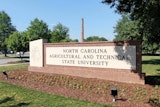Making STEM Careers More Accessible
In its July 2003 publication of Women, Minorities and Persons With Disabilities in Science and Engineering, the National Science Foundation (NSF) reports that high-school completion and college enrollment among African Americans and Hispanics continues to increase. NSF goes further to convey that these groups have shown an upward trend in completion of bachelor’s, master’s and doctoral degrees in science and engineering. Of course, there remains the substantial “but”; that is, African Americans and Hispanics are less likely than Whites and Asians to follow the generally accepted time line from high school to college matriculation and completion, including pursuit of doctoral degrees.
In its May 2003 Blue Ribbon Panel on IT Diversity Report, the Information Technology Association of America determined that racial minorities made “few inroads into high-tech careers between 1996 and 2002,” based on data from the U.S. Bureau of Labor Statistics and Current Population Surveys. While African Americans represented 10.9 percent of the U.S. work force in 2002, the percentage of African American IT professionals declined from 9.1 percent to 8.2 percent. A closer examination of the data, however, indicates African Americans are largely employed in lower paying, lower status positions that require less education and technical aptitude.
Barriers to entry for African Americans and other underrepresented groups in STEM careers are:
• Lack of role models and networking opportunities: Despite professional organizations that facilitate recruiting these groups, there is a negligible number of mentors and role models to engender retention and career progression.
• Information gap along with the digital divide: Among middle-and high-school students, underrepresented groups tend to enroll in fewer advanced mathematics and science courses to strengthen their likelihood of success in an IT-related career, according to the National Action Council for Minorities in Engineering (NACME). This, in part, may be a reflection of career information provided by teachers and counselors to underrepresented groups. According to my own research, the digital divide may address the lack of access but, more importantly, there is exposure and understanding of the economic gains associated with technology-related careers.
• The perception of IT as a career for White males: This appears to be the “computer geek” image, which is viewed as less accepting of women and underrepresented groups.
• Lack of commitment from practice and the academy: This remains an issue in the wake of the most recent Supreme Court case regarding the University of Michigan’s admissions policies and current trends in the industry to illustrate that African Americans and other minorities work predominately in lower level IT positions.
At the undergraduate, master’s and doctoral levels of education, mentoring programs for underrepresented minorities have shown some rates of success in upping the numbers. The central focus of initiatives such as The PhD Project, Florida Education Fund, Southern Regional Education Board and National Society of Black Engineers is mentoring. (In)formal mentoring is, without question, a significant element for those striving to attain and successfully earn doctoral degrees and move into the academic world of publish or perish. But even after earning the doctoral degree, STEM underrepresented faculty need supportive, not token, faculty who can help navigate the playing field. Thus, colleges and university administrators are challenged to move from paper frameworks to implementation, in an effort to overcome these barriers.
— Dr. Fay Cobb Payton is an assistant professor of information systems/technology at North Carolina State University.
© Copyright 2005 by DiverseEducation.com















